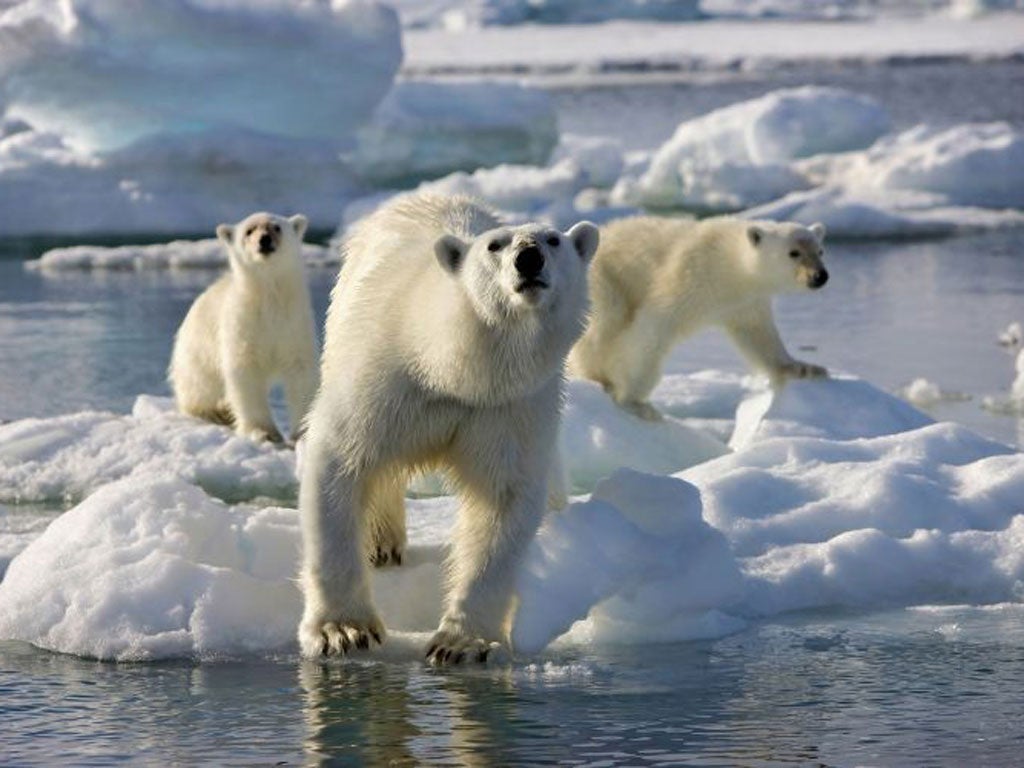Frozen Planet documentary maker in trouble for 'disturbing' Norway's polar bears

Your support helps us to tell the story
From reproductive rights to climate change to Big Tech, The Independent is on the ground when the story is developing. Whether it's investigating the financials of Elon Musk's pro-Trump PAC or producing our latest documentary, 'The A Word', which shines a light on the American women fighting for reproductive rights, we know how important it is to parse out the facts from the messaging.
At such a critical moment in US history, we need reporters on the ground. Your donation allows us to keep sending journalists to speak to both sides of the story.
The Independent is trusted by Americans across the entire political spectrum. And unlike many other quality news outlets, we choose not to lock Americans out of our reporting and analysis with paywalls. We believe quality journalism should be available to everyone, paid for by those who can afford it.
Your support makes all the difference.One of the experts behind the critically acclaimed documentary Frozen Planet, is in hot water in Norway over “disturbing” polar bears for another BBC show while filming them in the wild.
Australian Jason Roberts has been filming polar bears in Svalbard, an archipelago in the Arctic Ocean that is the northernmost part of Norway, for 22 years and has worked with broadcasters from all over the world.
He was last week notified by the Norwegian authorities that he faced a fine for “disturbing” the polar bears during work on the BBC’s co-production with the Discovery channel The Polar Bear Family & Me. The show screened in the UK on BBC Two in January.
Mr Roberts was the expert, field producer and safety advisor for the show’s production team fronted by wildlife cameraman and presenter Gordon Buchanan.
In getting as close as possible to the polar bears, Mr Buchanan sat in a Perspex box, dubbed the “ice cube” close to a den. He talked of his delight at the experience, saying “I never dreamed I’d get so close”.
The Svalbard Governor, which oversees the archipelago, was less impressed. Strict environmental legislation protects the polar bears on Svalbard, and it believes the production may have fallen foul of the regulations after filming the animals from the ice cube.
Deputy governor Lars Erik Alfheim wrote to the Mr Roberts to give him “advanced warning of a fine for disturbing the polar bears,” saying he could face a fine of 50,000 Norwegian krona (£5,800).
“When you make a cage with a man inside and a polar bear attacks it, that is a disturbance,” Mr Alfheim said. If the animal had got into the box and attacked the presenter the production team would have had to kill it.
The Svalbard deputy said it was an “administrative offence” and fell outside the criminal system. Mr Roberts has 14 days to reply outlining his side of the story.

Watch Apple TV+ free for 7 days
New subscribers only. £8.99/mo. after free trial. Plan auto-renews until cancelled

Watch Apple TV+ free for 7 days
New subscribers only. £8.99/mo. after free trial. Plan auto-renews until cancelled
Mr Roberts did not return calls yesterday. Yet he told Norwegian newspaper Aftenposten that he would refuse to pay the fine as the cage had caused the animals no harm.
“I love them and have never bothered, disturbed or injured them,” he said, adding that the law’s demands for protective measures was why they used the cage.
“Polar bears are curious, and them walking 50 metres to investigate cannot possibly be regarded as bothering them.” He has been using cages, in different forms, for two decades.
Polar bears are the symbol of the archipelago, with a common population of 3,000 shared with Franz Joseph Land.
While they are protected, polar bears are killed if they attack humans. In 2011, a 17-year old British tourist was killed, with four others injured on Spitsbergen, the only populated island of Svalbard, after a polar bear attacked the camp. It was then shot.
The deputy governor said he knew Mr Roberts and his work; “on an island of 2,000 you tend to know most people”.
The BBC did not return calls. Two years ago, the BBC faced questions over filming polar bears in a zoo as part of its documentary series Frozen Planet.
Reports claimed that footage cut into the programme of recently born cubs was misleading as it had been taken in a zoo rather than the Arctic. Some felt the BBC had not made it clear.
Join our commenting forum
Join thought-provoking conversations, follow other Independent readers and see their replies
Comments